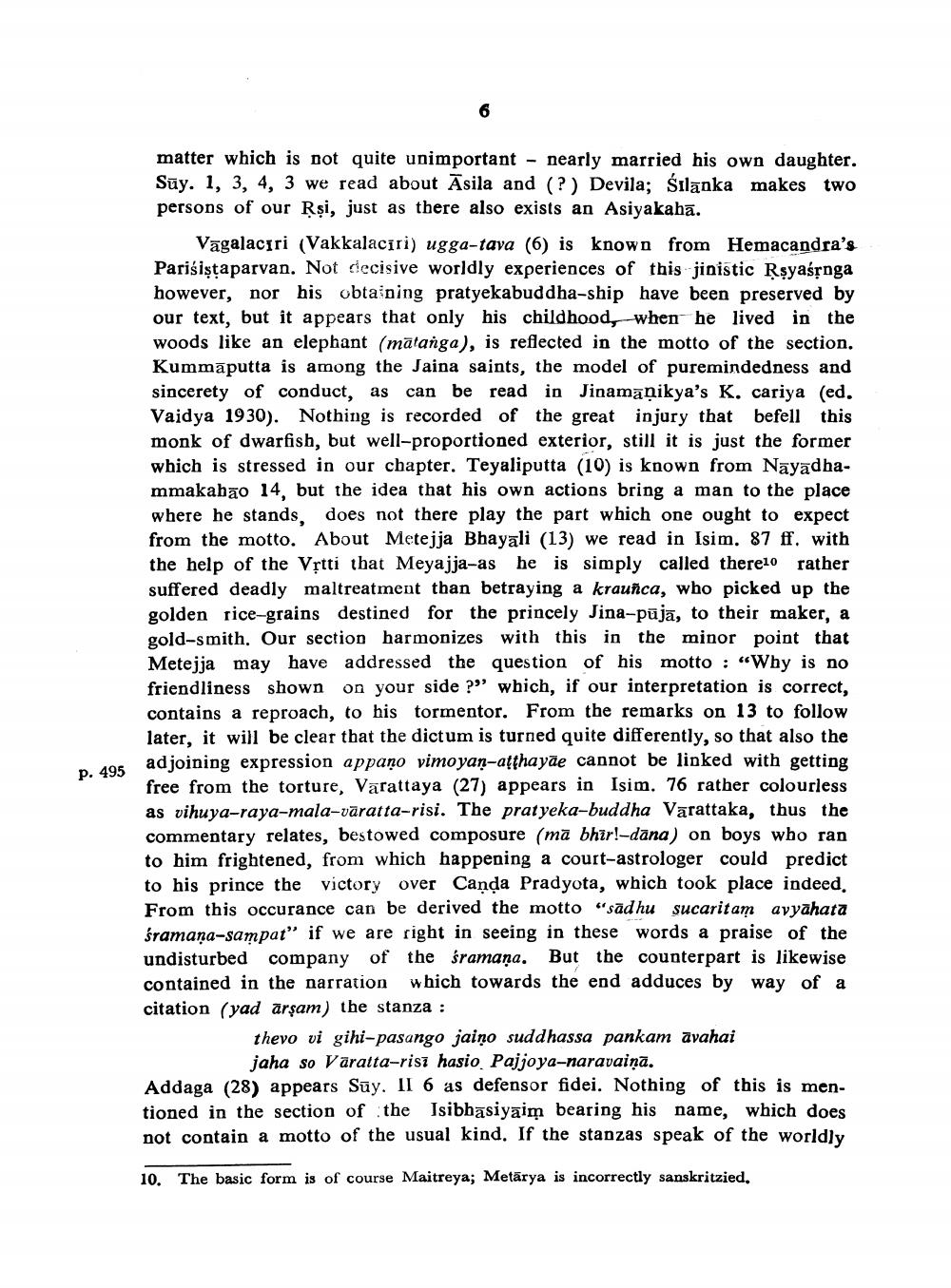________________
matter which is not quite unimportant - nearly married his own daughter. Sūy. 1, 3, 4, 3 we read about Āsila and (?) Devila; “ilānka makes two persons of our Rși, just as there also exists an Asiyakahā.
Vāgalacıri (Vakkalaciri) ugga-tava (6) is known from Hemacandra's Parišiştaparvan. Not decisive worldly experiences of this jinistic Rşyaśộnga however, nor his obtaining pratyekabuddha-ship have been preserved by our text, but it appears that only his childhood, when he lived in the woods like an elephant (matanga), is reflected in the motto of the section. Kummāputta is among the Jaina saints, the model of puremindedness and sincerety of conduct, as can be read in Jinamāņikya's K. cariya (ed. Vaidya 1930). Nothing is recorded of the great injury that befell this monk of dwarfish, but well-proportioned exterior, still it is just the former which is stressed in our chapter. Teyaliputta (10) is known from Nayadhammakabão 14, but the idea that his own actions bring a man to the place where he stands, does not there play the part which one ought to expect from the motto. About Metejja Bhayāli (13) we read in Isim. 87 ff. with the help of the Vștti that Meyajja-as he is simply called therelo rather suffered deadly maltreatment than betraying a krauñca, who picked up the golden rice-grains destined for the princely Jina-pājā, to their maker, a gold-smith. Our section harmonizes with this in the minor point that Metejja may have addressed the question of his motto : “Why is no friendliness shown on your side ?” which, if our interpretation is correct, contains a reproach, to his tormentor. From the remarks on 13 to follow later, it will be clear that the dictum is turned quite differently, so that also the adjoining expression appaņo vimoyan-atthayāe cannot be linked with getting free from the torture, Varattaya (27) appears in Isim. 76 rather colourless as vihuya-raya-mala-vāratta-risi. The pratyeka-buddha Varattaka, thus the commentary relates, bestowed composure (ma bhir!-dana) on boys who ran to him frightened, from which happening a court-astrologer could predict to his prince the victory over Canda Pradyota, which took place indeed. From this occurance can be derived the motto "sādhu sucaritam ayyahata śramaņa-sampat" if we are right in seeing in these words a praise of the undisturbed company of the śramaņa. But the counterpart is likewise contained in the narration which towards the end adduces by way of a citation (yad arşam) the stanza :
thevo vi gihi-pasango jaiņo suddhassa pankam avahai
jaha so Varatta-risz hasio Pajjoya-naravaiņā. Addaga (28) appears Sūy. II 6 as defensor fidei. Nothing of this is mentioned in the section of the Isibbasiyaim bearing his name, which does not contain a motto of the usual kind. If the stanzas speak of the worldly
P. 495
10.
The basic form is of course Maitreya; Metārya is incorrectly sanskritzied,




